The Faculty of Economics and Business in Osijek, Croatia (EFOS)
is pleased to announce
Thursday, June 6th, 2024
10.00 – opening
10.15 – key note speach professor Leo Paul Dana
11.00 – coffee break
11.30 – AACSB workshop
13.00 – lunch break
14.00 – parallel sessions
18.30 – city walk - guided tour
19.30 - dinner
Friday, June 7th, 2024
9.30 – Heinnovate workshop for all participants
11.00 – coffee break
11.30 – parallel sessions
13.00 – lunch
14.00 – end of the conference
+++++++++++++++++++++++
The aim of this conference is to bring together scientists and experts involved in the study of economic and social development, to promote the exchange of opinions and ideas and to provide practical recommendations for economic and social practice.
Keynote speaker of the conference will be Professor Dr. Leo-Paul Dana, distinguished entrepreneurship scholar, ranked number 1 Entrepreneurship Scientist in Canada in 2023 and also in France, who will present the lecture titled Entrepreneurship and regional development: almost a controlled experiment. He is among the most cited authors in the area of entrepreneurship and business in many high ranked journals such as Journal of World Business, Entrepreneurship Theory and Practice, Journal of Business Research, etc.
The RED conference is also organizing two very interesting workshops in collaboration with AACSB and the European Commission and Technopolis ltd.
The workshop "From Accreditation to Action: Transforming Universities with AACSB“ will focus on the benefits and opportunities of AACSB accreditation. The workshop will be led by Ron Tuninga, Vice President and Managing Director for the Europe, Middle East and Africa Region, AACSB International and Natalia Ilina, Accreditation and Member Services Manager AACSB International.
The workshop, "HEInnovate for Modern Higher Education", presents a unique opportunity for scholars to explore tools and examples that transform universities into innovative and entrepreneurial institutions. The workshop will be led by HEInnovate experts: Zsuzsa Jávorka, Managing Consultant, Thematic Lead for Higher Education, Technopolis Group, Adina Fodor, HEInnovate expert, Head of the Office for Inter-university Agreements at Babeș-Bolyai University and Suncica Oberman Peterka, HEInnovate expert, Faculty of Economics and Business in Osijek, University of Osijek.
The conference is organised in collaboration with our partners, the co-organisers of the conference: University of Maribor, Faculty of Economics and Business, University of Tuzla, Faculty of Economics in Tuzla and Pforzheim University Business school.
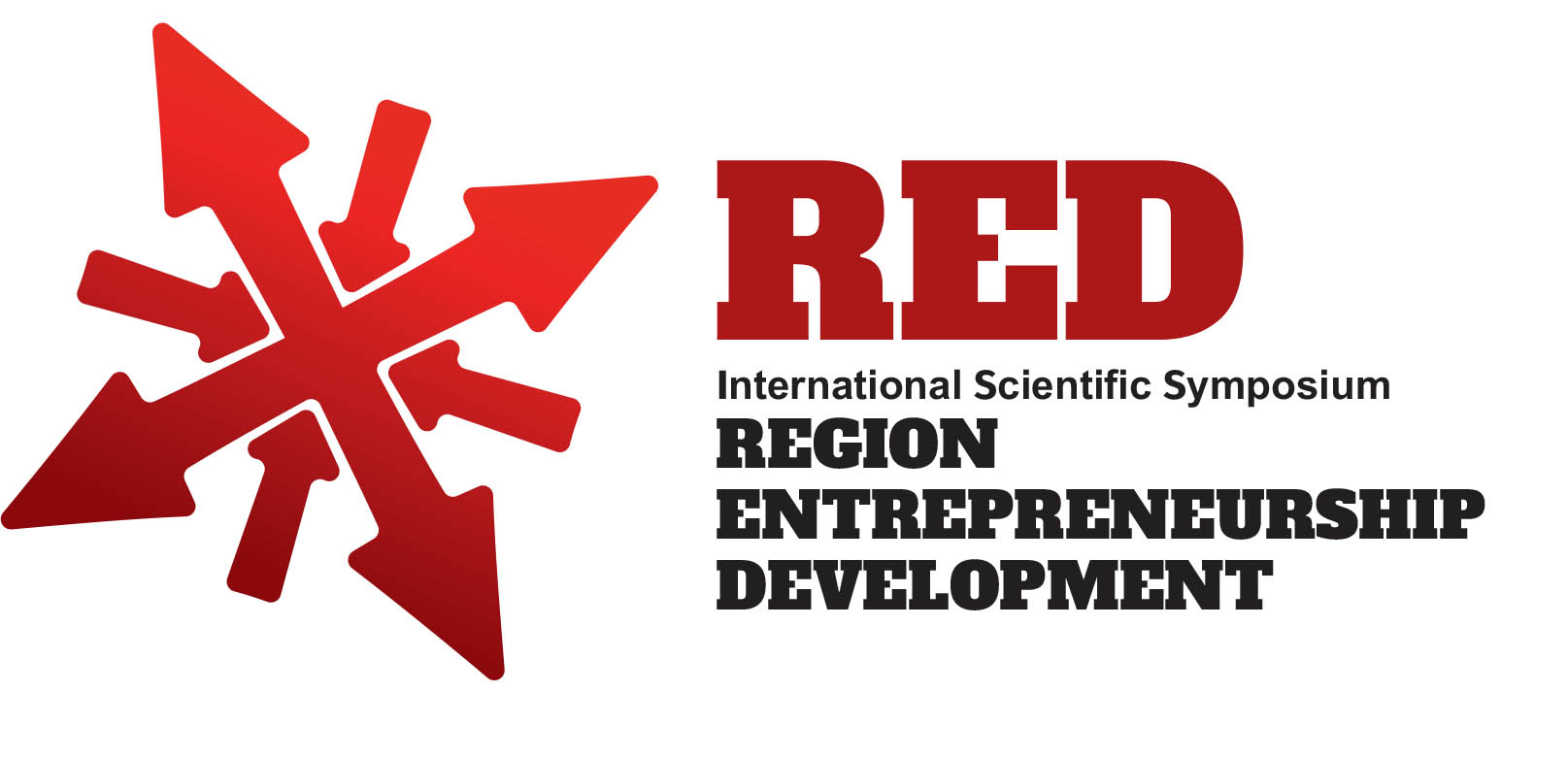
The RED Conference (Region Entrepreneurship Development Conference) was born from the international scientific meeting The Economy of Eastern Croatia – Yesterday, Today, Tomorrow, which was started at the Faculty of Economics in Osijek in 2012. The main goal of this meeting was to connect scientists and experts dealing with economic and social development in order to exchange ideas, thoughts and examples of good practice. More than 100 scientists and experts gathered at the first meeting, and 42 scientific papers were presented.
From 2020, the conference operates under the name Region Entrepreneurship Development in order to more clearly highlight the areas and topics on which the conference is focused: regional development (interdisciplinary approach to growth and development, regional integration and competitiveness), entrepreneurship (entrepreneurial ecosystem, international entrepreneurship, social entrepreneurship, entrepreneurial finance) and development (social responsibility, tourism, financial infrastructure, cultural heritage, human capital, legal and technological challenges of development).
Each year, the conference brings together a growing number of scientists from the country and the world to present their scientific and professional papers. The papers are published in the conference proceedings and, as they are subject to rigorous double-blind review, all previous proceedings are indexed in up-to-date databases (Web of Science).
The conference offers the opportunity to exchange ideas and reflections, to present scientific and professional research results, and to learn and network.
Topics
Academics, professionals and researchers are invited to submit abstracts of their papers for the Symposium, in the framework of following topics:
REGION
ENTREPRENEURSHIP
DEVELOPMENT
Publication ethics
Author’s responsibility
Authors are responsible for the originality and authorship of their manuscripts and should behave in accordance with the ethical principles and rules of scientific honesty for the authors of the European Association of Scientific Editors (EASE): http://www.ease.org.uk/wp-content/uploads/2015/12/EASE-Guidelines-2017-English.pdf
If they use other knowledge or their own previously published knowledge, this should be properly referred and cited. The description of the research process should contain all the information relevant for judging the ethics of research implementation. Editorial board may also request confirmation that the research has been approved by the ethics committee of the competent institution. Authors are required to obtain permission to print pictures, documents and other materials from the appropriate copyright holders. Authors should list the organizations, scientific projects or institutions that have supported research, which are published in the article.
In case of suspicion of unethical scientific conduct (plagiarism, self-plagiarism, manipulation of data, redundant manuscripts, changes in authorship etc.) the Editorial board will act in accordance with the guidelines of the international association – “Committee on Publication Ethics” (COPE): http://publicationethics.org/resources/flowcharts).
Changes to authorship
According to the guidelines for authors of the European Association of Scientific Editors (EASE) http://ease.org.uk/publications/author-guidelines, authors are expected to consider carefully the list and order of authors before submitting their manuscript and provide the definitive list of authors at the time of the original submission. Any addition, deletion or rearrangement of author names in the authorship list should be made only before the manuscript has been accepted and only if approved by the journal editorial board. To request such a change, the editorial board must receive the following from the corresponding author: (a) the reason for the change in author list and (b) written confirmation (e-mail, letter) from all authors that they agree with the changes. In the case of addition or removal of authors, this includes confirmation from the author being added or removed. Only in exceptional circumstances will the Editorial board consider the addition, deletion or rearrangement of authors after the manuscript has been accepted. If the manuscript has already been published in an online issue, any requests approved by the Editor will result in a corrigendum.
Responsibility of reviewers
Reviewers are required to handle each manuscript as confidential, and to protect the integrity of the author and manuscript.
Reviewers should consider the received manuscript in a highly responsible, constructive and objective way and warn the editors if they are not sufficiently qualified for the topic of work.
Reviewers are required to disclose potential conflicts of interest regarding the manuscript that they review, and in case of conflicts of interest, are excluded from the review procedure. It is equally valid for members of the Editorial boards who are excluded from the editorial process if they are in conflict of interest (co-operation or other form of relationship with the authors).
Program Committee
Prof. SUNČICA OBERMAN PETERKA, Ph.D. (chairperson)
Josip Juraj Strossmayer University of Osijek, Croatia
Faculty of Economics and Business in Osijek
Organizing Committee
Prof. ANAMARIJA DELIĆ, Ph.D. (chairperson)
Josip Juraj Strossmayer University of Osijek, Croatia
Faculty of Economics and Business in Osijek
Editorial Committee
Prof. Aleksandar Erceg, Ph.D. (chairperson)
Adela Has, Ph.D.
Ana Zrnić, Ph.D.
Ružica Stanić, M.Sc.
Ivana Unukić, univ.mag.oec.
Katica Križanović, univ. spec. oec., technical editor
General information
All papers will be double-blind reviewed. The official language of the Symposium is English.
Deadlines:
Abstract submission: February 1st, 2024 (please use the template for abstracts)
Abstract acceptance notification: February 15th, 2024
Full paper submission: April 1st, 2024 (please use the template for full papers)
Paper acceptance notification: May 1st, 2024
Early registration: May 15th, 2024
Final registration: May 15th – May 25th, 2024
Conference: June 6th – June 7th, 2024
Instructions for Papers
Submissions of final papers have to be written according to the following instructions:
Abstracts have to be written according to the following instructions:
Final papers have to be written according to the following instructions:
The paper should be written according to the following template/instructions: Guidelines for papers
Abstracts and full papers should be uploaded through the Conference Management Toolkit online platform:
https://cmt3.research.microsoft.com/RED2024.
Statement of authorship and originality of the paper
Authors should also submit a signed Statement of authorship and originality of the paper until March 1st, 2024 to email katica.krizanovic@efos.hr
The Statement of authorship and originality
Symposium Proceedings
Accepted papers will be published on USB with an ISSN number. Only papers that will be presented at the Symposium will be published.
Symposium fee
| Participants from EU countries | Participants from non-EU countries | |
| Early registration: May 10th, 2024 | ||
| Dinner included | 340€ + VAT* | 250€ + VAT* |
| Without dinner | 300€ + VAT* | 200€ + VAT* |
| Final registration: May 11th – May 24th, 2024 | ||
| Dinner included | 360€ + VAT* | 250€ + VAT* |
| Without dinner | 320€ + VAT* | 200€ + VAT* |
| Doctoral students | 250€ + VAT* | 150€ + VAT* |
| For accompanying persons and authors who haven´t paid conference fee, fee for participating on excursion and lunch | 200€ + VAT* | 200€ + VAT* |
Online participation fee 150€ + VAT* (for all participants)
*VAT is 25%
Symposium fee includes:
Payments by direct bank transfer should be done at the following account:
For payment in EUR:
Bank: Erste&Steiermärkische Bank d.d.
Transaction account (IBAN): HR94 2402 0061 1010 7094 4
Re. number: 06062024 – OIB
Obligatory details to be included:
IMPORTANT NOTE
PLEASE, SEND US A PROOF OF PAYMENT BY FAX NO. ++ 385 31 211 604 or by mail to red@efos.hr.
Proceedings of 12th International Scientific Symposium “Region, Entrepreneurship, Development” can be downloaded here.
Program RED 2023 can be downloaded here.
RED 2023 KEYNOTE SPEAKERS
Meet our RED 2023 keynote speakers: Prof. dr. Slavica Singer, Professor Emerita will speak on the topic „UN Sustainable Development Goals 2050 are a shared ‘destination’ – does it hold for regional ecosystems?“ Prof. Dr. Thomas Cleff will speak on the topic of “International accreditation as a means of strengthening the competitiveness of business schools.“
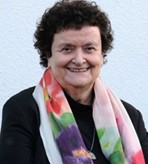 Slavica Singer is Professor Emerita of Entrepreneurship at the J.J. Strossmayer University in Osijek, Croatia. Slavica’s research focus is on connecting holistic approach with understanding of entrepreneurship as a mindset, the role of small businesses in the economic development, gender gap in entrepreneurship, entrepreneurship ecosystem and the role of the entrepreneurial university in the Quintuple Helix model (academia, government, business, civil society and environment). From 2010 she is leading the interdisciplinary interuniversity doctoral program ENTREPRENEURSHIP AND INNOVATIVENESS which has been started as a result of collaborative efforts of five universities (Osijek, Croatia; Turku, Finland; Maribor, Slovenia; Klagenfurt, Austria and Durham, UK). Next to students from Croatia, there are doctoral students from Bosnia and Herzegovina, Canada, China, Greece, Kosovo, Nigeria, Oman, Spain, USA. With her team she contributed to building institutional infrastructure (ecosystem) needed to support entrepreneurship activities in Croatia (micro credit institution NOA in Osijek, 1996; Center for Entrepreneurship in Osijek, 1997; CEPOR Policy center for development of SMEs and entrepreneurship in Zagreb, 2001.). Professor Singer leads Global Entrepreneurship Monitor (GEM) research team in Croatia, from 2002. Slavica is often engaged by the OECD as a consultant/expert in the field of reviewing national policies on entrepreneurship, inclusivity and entrepreneurship education. For her contributions to the development of research / university based entrepreneurship education, in 2008 she was awarded with the UNESCO Chair in Entrepreneurship Education, in 2010 with the honorary doctorate by the University of Turku, Turku School of Economics, Finland. In 2021, she was awarded with the European Entrepreneurship Education Award, by the Lund University, Sweden: https://entrepreneur.lu.se/en/events/eeea/winner-2021
Slavica Singer is Professor Emerita of Entrepreneurship at the J.J. Strossmayer University in Osijek, Croatia. Slavica’s research focus is on connecting holistic approach with understanding of entrepreneurship as a mindset, the role of small businesses in the economic development, gender gap in entrepreneurship, entrepreneurship ecosystem and the role of the entrepreneurial university in the Quintuple Helix model (academia, government, business, civil society and environment). From 2010 she is leading the interdisciplinary interuniversity doctoral program ENTREPRENEURSHIP AND INNOVATIVENESS which has been started as a result of collaborative efforts of five universities (Osijek, Croatia; Turku, Finland; Maribor, Slovenia; Klagenfurt, Austria and Durham, UK). Next to students from Croatia, there are doctoral students from Bosnia and Herzegovina, Canada, China, Greece, Kosovo, Nigeria, Oman, Spain, USA. With her team she contributed to building institutional infrastructure (ecosystem) needed to support entrepreneurship activities in Croatia (micro credit institution NOA in Osijek, 1996; Center for Entrepreneurship in Osijek, 1997; CEPOR Policy center for development of SMEs and entrepreneurship in Zagreb, 2001.). Professor Singer leads Global Entrepreneurship Monitor (GEM) research team in Croatia, from 2002. Slavica is often engaged by the OECD as a consultant/expert in the field of reviewing national policies on entrepreneurship, inclusivity and entrepreneurship education. For her contributions to the development of research / university based entrepreneurship education, in 2008 she was awarded with the UNESCO Chair in Entrepreneurship Education, in 2010 with the honorary doctorate by the University of Turku, Turku School of Economics, Finland. In 2021, she was awarded with the European Entrepreneurship Education Award, by the Lund University, Sweden: https://entrepreneur.lu.se/en/events/eeea/winner-2021
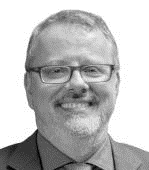 Prof. Dr. Thomas Cleff has been a professor of quantitative methods in business administration at the Pforzheim University of Applied Sciences since 2000. He holds a degree in business administration and economics from the Université de Panthéon-Sorbonne (France) and the University of Wuppertal. Between 1997 and 2000 he was senior researcher at the Center for European Economic Research Mannheim (ZEW). In Pforzheim, Thomas Cleff has held various management positions since his appointment: He developed the International Marketing bachelor’s degree, was elected Vice Dean in 2012 and has been Dean of the Pforzheim Business School since 2014. He is an expert on issues relating to international accreditation and international cooperation between universities.
Prof. Dr. Thomas Cleff has been a professor of quantitative methods in business administration at the Pforzheim University of Applied Sciences since 2000. He holds a degree in business administration and economics from the Université de Panthéon-Sorbonne (France) and the University of Wuppertal. Between 1997 and 2000 he was senior researcher at the Center for European Economic Research Mannheim (ZEW). In Pforzheim, Thomas Cleff has held various management positions since his appointment: He developed the International Marketing bachelor’s degree, was elected Vice Dean in 2012 and has been Dean of the Pforzheim Business School since 2014. He is an expert on issues relating to international accreditation and international cooperation between universities.
In 2013 he was elected to the board of the Network of International Business and Economic Schools (NIBES) and has been its Secretary General since 2019. Between 2016 and 2019 he served on the AACSB Initial Accreditation Committee (IAC-z) and on the board of the AACSB European Affinity Group. Since 2020 he has been a member of the AACSB Initial Accreditation Committee (IAC-y) for an additional term. As a member of various AACSB peer review teams, he is and was involved in the (re)accreditation of many universities worldwide. Since 2014 he has also been a member of the international advisory board of the accreditation organization Education Quality Accreditation Agency (EQUAA). Thomas Cleff is a member of the International Academic Council of the School of Management at the National Taiwan University of Science and Technology, Member of the International Advisory Board of Brest Business School (France) and member of the International Academic Board of ESC Clermont Business School (France). In addition to his teaching activities, Thomas Cleff is involved in research projects in the fields of international marketing research, brand research, innovation research and industrial studies. Between 2000 and 2018 he carried out part of his research as a Research Associate at ZEW Mannheim. He is a regular visiting professor at various international universities. innovation research and industrial studies. Between 2000 and 2018 he carried out part of his research as a Research Associate at ZEW Mannheim. He is a regular visiting professor at various international universities. innovation research and industrial studies. Between 2000 and 2018 he carried out part of his research as a Research Associate at ZEW Mannheim. He is a regular visiting professor at various international universities.
Proceedings of 11th International Scientific Symposium “Region, Entrepreneurship, Development” can be downloaded here.
Program RED 2022 can be downloaded here.
RED 2022 KEYNOTE SPEAKER
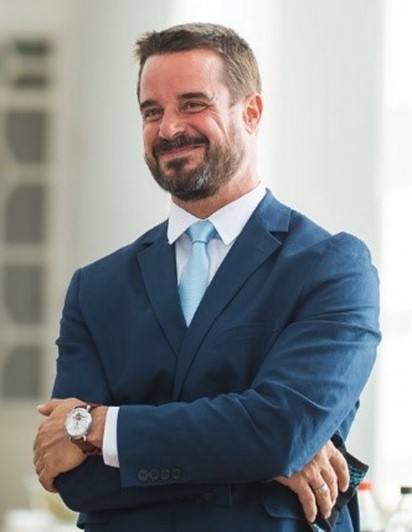 RED 2022 keynote speaker is Zsolt Bedo, PhD, the director of innovation and associate professor at the Faculty of Business and Economics at the University of Pecs.
RED 2022 keynote speaker is Zsolt Bedo, PhD, the director of innovation and associate professor at the Faculty of Business and Economics at the University of Pecs.
As an associate professor he conducts research in the area of university centered entrepreneurial ecosystems and on platform business model innovations. Bedo with coauthors developed the conceptual framework for the university centered entrepreneurial ecosystem, published in the Journal of Small Business and Enterprise Development in 2020, which allowed him and his colleagues to create a protocol, registered as a know-how that enables universities to self-assess their entrepreneurial and innovation ecosystems and their platform readiness. As a continuation of the self-assessment protocol, universities can have access to the ecosystem management tool developed by Bedo and his colleagues named https://www.openup.education/. Universities that implement openup.education solution and choose to organize innovative capacity building events to boost university wide entrepreneurship, like hackathons, can have access to the curriculum of the hackathon event and also to the online tool that is to measure the entrepreneurial attitude transformation of hackathon participants. This assessment tool enables universities to learn more about the entrepreneurial discovery process hackathon participants’ progress through.
Bedo is the co-founder of the Simonyi BEDC Entrepreneurship Center and the Center for Applied Learning unit of the Business Faculty. He has raised close to 1,5 million EURO of development funding (e.g.) Erasmus+ Strategic Partnership, H2020) from EU and from national sources to develop the university centered entrepreneurial ecosystem at the University of Pecs.
The topic of the keynote speech is: “University as the platform of entrepreneurial activity”.
Proceedings of 10th International Scientific Symposium „Region, Entrepreneurship, Development” can be downloaded here.
Program RED 2021 can be downloaded here.
RED 2021 KEYNOTE SPEAKER
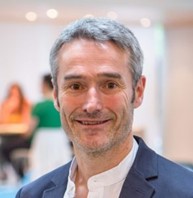 RED 2021 keynote speaker is Prof. Dr. Klaus Sailer, professor of Entrepreneurship at the Munich University of Applied Sciences and CEO of the Strascheg Center for Entrepreneurship (SCE). He´s a co-founder and in board at Social Entrepreneurship Academia and also in board at Munich Network.
RED 2021 keynote speaker is Prof. Dr. Klaus Sailer, professor of Entrepreneurship at the Munich University of Applied Sciences and CEO of the Strascheg Center for Entrepreneurship (SCE). He´s a co-founder and in board at Social Entrepreneurship Academia and also in board at Munich Network.
Klaus Sailer holds a Ph.D. in physics. He studied at the Ludwig Maximilian University in Munich and did his Ph.D. at the Research Center for Environment and Health. At Infineon AG Klaus Sailer was responsible for the project management and marketing of new semiconductor technologies. In 2000 Klaus Sailer co-founded a company with partners in the area of communication technologies and as its chairman was able to successfully establish it in the market and realised with further start up teams his innovative ideas.
His main issues are in innovation process, business modelling, networking, co-creation and societal innovations.
The topic of the keynote speech is: “The role of Universities to build an entrepreneurial eco-system – Munich case study”
Proceedings of 9th International Scientific Symposium „Region, Entrepreneurship, Development” can be downloaded here.
Proceedings of 8th International Scientific Symposium „Economy of eastern Croatia – vision and growth” can be downloaded here.
Proceedings of 7th International Scientific Symposium „Economy of eastern Croatia – vision and growth” can be downloaded here.
Proceedings of 6th International Scientific Symposium „Economy of eastern Croatia – vision and growth” can be downloaded here.
Proceedings of 5th International Scientific Symposium „Economy of eastern Croatia – vision and growth” can be downloaded here.
Proceedings of 4th International Scientific Symposium „Economy of eastern Croatia – vision and growth” can be downloaded here.
Proceedings of 3rd International Scientific Symposium „Economy of eastern Croatia – vision and growth” can be downloaded here.
Proceedings of 2nd International Scientific Symposium „Economy of eastern Croatia – yesterday, today, tomorrow” can be downloaded here.
Proceedings of 1st International Scientific Symposium „Economy of eastern Croatia – yesterday, today, tomorrow” can be downloaded here.
Katica Krizanovic, Technical editor, katica.krizanovic@efos.hr
Associate professor Anamarija Delic, Ph.D., Head of Organizing Committee, anamarija.delic@efos.hr;
Full professor Suncica Oberman Peterka, Ph.D., Head of Programme Committee, suncica.oberman.peterka@efos.hr